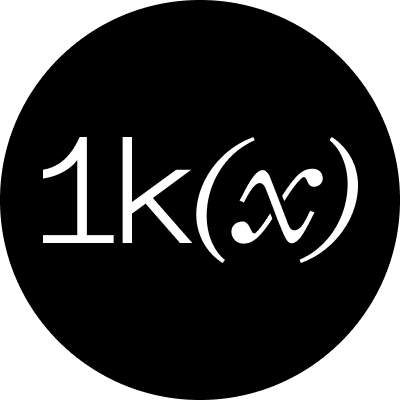Celestia Foundation Secures $100 Million to Revolutionize Blockchain Scalability
September 24, 2024, 9:32 pm
In the fast-paced world of blockchain technology, innovation is the lifeblood. The Celestia Foundation has just injected a fresh wave of energy into this ecosystem by securing $100 million in funding. This substantial investment, led by Bain Capital Crypto, signals a robust vote of confidence in Celestia's vision for modular blockchain networks. With this latest round, the total funding for Celestia has reached an impressive $155 million.
Celestia is not just another player in the blockchain arena. It is pioneering a modular blockchain architecture designed to tackle the scalability challenges that have plagued traditional networks. The essence of Celestia's approach lies in its separation of layers. By decoupling the consensus and data layers from the execution layer, Celestia allows developers to craft their own transaction rules. This flexibility is akin to giving a chef the freedom to create a unique recipe rather than following a rigid menu.
The modular design of Celestia aims to enhance efficiency, speed, and security while keeping costs low. In contrast, many existing blockchains, like Ethereum, combine execution and data, leading to congestion and high fees. Imagine a highway jammed with traffic; Celestia is the express lane that promises a smoother ride.
The recent funding comes at a time when Celestia's native token, TIA, has faced challenges, dropping 54% since the start of 2024. Despite this setback, the enthusiasm surrounding Celestia's technology remains palpable. The foundation's previous airdrop in 2023 was a resounding success, distributing TIA to 580,000 users. This shows that while the market may fluctuate, the community's interest in Celestia's offerings is unwavering.
Celestia's architecture is designed to scale blockspace from the "dial-up era" to the "broadband era," as described by co-founder Mustafa Al-Bassam. The recent unveiling of a technical roadmap promises to elevate this further, aiming for a "fiber optic era" of blockchain technology. This roadmap includes ambitious plans for larger block sizes, reaching up to 1 gigabyte, which will significantly boost transaction throughput.
To put this into perspective, Celestia aims to achieve transaction speeds that rival major financial networks. The goal is to match or exceed the capacity of Visa, which processes around 24,000 transactions per second (TPS). In comparison, Ethereum currently handles about 50 TPS, while Solana boasts a theoretical peak of 65,000 TPS but averages around 400 TPS. Celestia's promise of delivering the capacity of multiple Visa networks in parallel is a bold claim that could reshape the landscape of blockchain applications.
One of the standout features of Celestia is its flexibility in smart contract execution. Developers can choose their own virtual machines, whether it be the Ethereum Virtual Machine, Solana's, or even zero-knowledge roll-ups. This adaptability is crucial in a rapidly evolving tech landscape, where the ability to pivot can mean the difference between success and failure.
The funding from Bain Capital Crypto, along with contributions from Syncracy Capital, 1kx, Robot Ventures, and Placeholder, reflects a growing recognition of the potential of modular blockchains. As the industry matures, investors are increasingly looking for solutions that address scalability without compromising on security or decentralization.
Celestia's approach is part of a broader trend in the blockchain space, where modular designs are gaining traction. These architectures aim to provide cheaper alternatives to traditional layer-1 blockchains, which often struggle with high costs and slow transaction speeds. By focusing on data availability, Celestia positions itself as a vital player in this evolving landscape.
The implications of Celestia's success could be profound. If it can deliver on its promises, it may set a new standard for blockchain scalability. This could open the floodgates for a new wave of decentralized applications, enabling developers to build more complex and efficient systems. The potential for innovation is immense, and the market is watching closely.
In conclusion, the Celestia Foundation's recent funding round is more than just a financial boost; it represents a significant step toward redefining blockchain technology. With its modular architecture, Celestia is poised to tackle the scalability issues that have long hindered the industry. As it embarks on this journey, the foundation's commitment to innovation and flexibility will be key. The road ahead is filled with challenges, but with $100 million in its corner, Celestia is ready to take on the world. The future of blockchain may very well be modular, and Celestia is leading the charge.
Celestia is not just another player in the blockchain arena. It is pioneering a modular blockchain architecture designed to tackle the scalability challenges that have plagued traditional networks. The essence of Celestia's approach lies in its separation of layers. By decoupling the consensus and data layers from the execution layer, Celestia allows developers to craft their own transaction rules. This flexibility is akin to giving a chef the freedom to create a unique recipe rather than following a rigid menu.
The modular design of Celestia aims to enhance efficiency, speed, and security while keeping costs low. In contrast, many existing blockchains, like Ethereum, combine execution and data, leading to congestion and high fees. Imagine a highway jammed with traffic; Celestia is the express lane that promises a smoother ride.
The recent funding comes at a time when Celestia's native token, TIA, has faced challenges, dropping 54% since the start of 2024. Despite this setback, the enthusiasm surrounding Celestia's technology remains palpable. The foundation's previous airdrop in 2023 was a resounding success, distributing TIA to 580,000 users. This shows that while the market may fluctuate, the community's interest in Celestia's offerings is unwavering.
Celestia's architecture is designed to scale blockspace from the "dial-up era" to the "broadband era," as described by co-founder Mustafa Al-Bassam. The recent unveiling of a technical roadmap promises to elevate this further, aiming for a "fiber optic era" of blockchain technology. This roadmap includes ambitious plans for larger block sizes, reaching up to 1 gigabyte, which will significantly boost transaction throughput.
To put this into perspective, Celestia aims to achieve transaction speeds that rival major financial networks. The goal is to match or exceed the capacity of Visa, which processes around 24,000 transactions per second (TPS). In comparison, Ethereum currently handles about 50 TPS, while Solana boasts a theoretical peak of 65,000 TPS but averages around 400 TPS. Celestia's promise of delivering the capacity of multiple Visa networks in parallel is a bold claim that could reshape the landscape of blockchain applications.
One of the standout features of Celestia is its flexibility in smart contract execution. Developers can choose their own virtual machines, whether it be the Ethereum Virtual Machine, Solana's, or even zero-knowledge roll-ups. This adaptability is crucial in a rapidly evolving tech landscape, where the ability to pivot can mean the difference between success and failure.
The funding from Bain Capital Crypto, along with contributions from Syncracy Capital, 1kx, Robot Ventures, and Placeholder, reflects a growing recognition of the potential of modular blockchains. As the industry matures, investors are increasingly looking for solutions that address scalability without compromising on security or decentralization.
Celestia's approach is part of a broader trend in the blockchain space, where modular designs are gaining traction. These architectures aim to provide cheaper alternatives to traditional layer-1 blockchains, which often struggle with high costs and slow transaction speeds. By focusing on data availability, Celestia positions itself as a vital player in this evolving landscape.
The implications of Celestia's success could be profound. If it can deliver on its promises, it may set a new standard for blockchain scalability. This could open the floodgates for a new wave of decentralized applications, enabling developers to build more complex and efficient systems. The potential for innovation is immense, and the market is watching closely.
In conclusion, the Celestia Foundation's recent funding round is more than just a financial boost; it represents a significant step toward redefining blockchain technology. With its modular architecture, Celestia is poised to tackle the scalability issues that have long hindered the industry. As it embarks on this journey, the foundation's commitment to innovation and flexibility will be key. The road ahead is filled with challenges, but with $100 million in its corner, Celestia is ready to take on the world. The future of blockchain may very well be modular, and Celestia is leading the charge.


